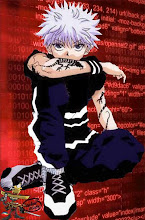Windows 7 and Ubuntu 9.10 Karmic Koala will both be released this month. We look at what the two new operating systems will offer.
Next week, Microsoft's Windows 7 operating system will officially be released to users. And the week after that will see the release of Ubuntu 9.10, or Karmic Koala, the latest release of Ubuntu Linux. We look at what users can expect from both these releases.
Ubuntu 9.10 (Karmic Koala)
Karmic Koala is the latest in a long line of six-monthly releases from the Ubuntu development team. With a substantially quicker release cycle than Microsoft's Windows roadmap, the changes in Karmic Koala since Jaunty in April are fairly limited. The Karmic Koala release is also the latest long-term-support release of the operating system which means it is inherently more conservative than other releases as it is designed with enterprise users in mind.
The first thing users, hopefully, will see is a new theme for Karmic which will make it feel a little more contemporary. The problem is that a new theme for Ubuntu has been in the pipeline for the past two releases and apart from some minor tweaks has largely been insignificant.
Karmic is also expected to have improved audio capabilities which will be an important development. Audio handling on Linux has been famously bad over the years and as multimedia becomes an increasingly important part of the modern desktop, audio failings become increasingly noticeable.
Faster boot-up time is also to be expected. With increasing numbers of users using notebooks as their primary work platform most software and hardware makers have been looking to reduce the time that notebooks take to go from cold start to a workable state. The Ubuntu team has been saying for some time now that they hope to achieve boot times of less than 20 seconds with the release of Ubuntu 9.10. And more recently developers laid out plans to reduce that to sub-10 seconds with the release following Karmic in April 2010.
Boot-up on Ubuntu is also expected to be a lot smoother and attractive because developers are using Red Hat's Plymouth boot system. Using Plymouth, users will get a new, mostly flicker-free, graphical bootup. This won't be worrying Microsoft but will go a long way to reduce the impression that Linux is overly geeky.
Windows 7
Unlike Ubuntu Karmic, Windows 7 has been in development for years and has had a public beta version available for the best part of a year. But that effort looks likely to pay off with Windows 7 really looking the part of a modern operating system with its transparency, floating desktop widgets and aqua-toned desktop.
Multimedia is a big focus of Windows 7 and the OS will ship with Windows Media Player 12 by default. Unlike previous versions of Media Player, version 12 includes better features for managing media files. This is done with a dual-mode approach: the Library view and the Now Playing view. Microsoft has separated the two roles and enhanced each of them. Using the Library view users have access to all of the media management tools including categories, playlists and ratings. One of the nice features of the Library view is the ability to list all media types in a single tree view, making it easier to manage them in a single place. The Now Playing view, on the other hand, shows the current playlist, videos, visual effects and so on.
In use the most obvious benefit of Windows 7 is the significant reduction in what could be called "interference". Microsoft has been working hard on reducing the levels of interference for users by limiting the number of pop-ups and warning notices. It's all about the changes to User Account Control which instead of constantly popping up warnings of impending doom and danger are slightly muted and less obtrusive. They're still there but just not with the same vigour as before.
The taskbar in Windows 7 is also a great deal better than the taskbar offered by Windows Vista or XP. For the uninitiated the taskbar operate as a series of "flyouts" which are smaller representations of open Windows. They're pretty and functional but could be just as effective without the flashy popup windows. One of the complaints against the task bar could be that by default the open windows are all crammed together on the taskbar, which can make it messy if you have too many windows open.
Perhaps Windows 7's biggest asset is that it is noticeably slicker than Windows Vista, which has a sluggish feel about it.
In Ubuntu's case one of its assets is the work done to support netbook PCs. Ubuntu's Netbook Remix interface is a very slick alternative for the smaller screen space common on netbooks.
Windows 7 is being released on October 7 and Ubuntu Karmic on October 29.
Subscribe to:
Post Comments (Atom)

0 comments